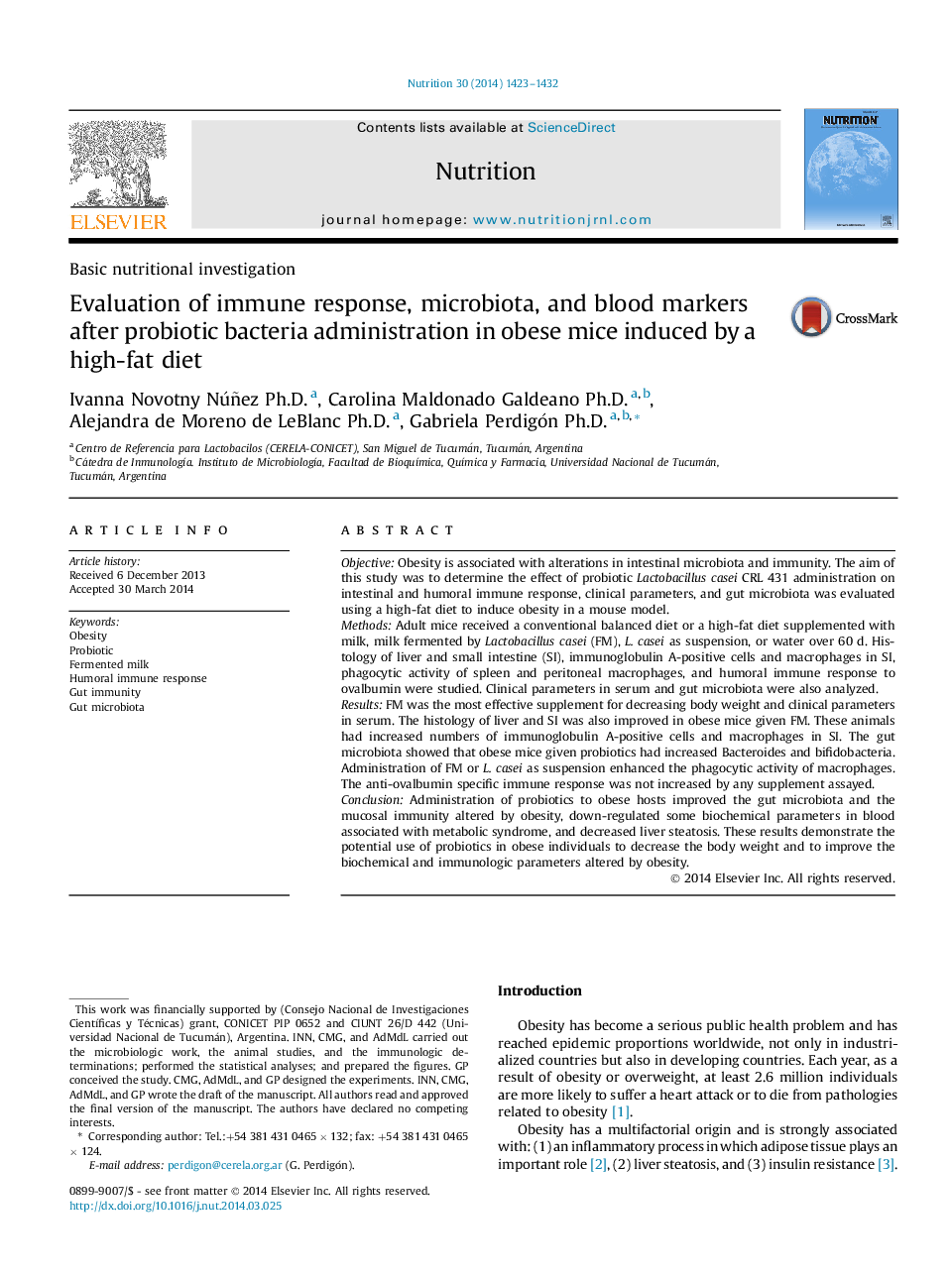| Article ID | Journal | Published Year | Pages | File Type |
|---|---|---|---|---|
| 6089380 | Nutrition | 2014 | 10 Pages |
ObjectiveObesity is associated with alterations in intestinal microbiota and immunity. The aim of this study was to determine the effect of probiotic Lactobacillus casei CRL 431 administration on intestinal and humoral immune response, clinical parameters, and gut microbiota was evaluated using a high-fat diet to induce obesity in a mouse model.MethodsAdult mice received a conventional balanced diet or a high-fat diet supplemented with milk, milk fermented by Lactobacillus casei (FM), L. casei as suspension, or water over 60Â d. Histology of liver and small intestine (SI), immunoglobulin A-positive cells and macrophages in SI, phagocytic activity of spleen and peritoneal macrophages, and humoral immune response to ovalbumin were studied. Clinical parameters in serum and gut microbiota were also analyzed.ResultsFM was the most effective supplement for decreasing body weight and clinical parameters in serum. The histology of liver and SI was also improved in obese mice given FM. These animals had increased numbers of immunoglobulin A-positive cells and macrophages in SI. The gut microbiota showed that obese mice given probiotics had increased Bacteroides and bifidobacteria. Administration of FM or L. casei as suspension enhanced the phagocytic activity of macrophages. The anti-ovalbumin specific immune response was not increased by any supplement assayed.ConclusionAdministration of probiotics to obese hosts improved the gut microbiota and the mucosal immunity altered by obesity, down-regulated some biochemical parameters in blood associated with metabolic syndrome, and decreased liver steatosis. These results demonstrate the potential use of probiotics in obese individuals to decrease the body weight and to improve the biochemical and immunologic parameters altered by obesity.
